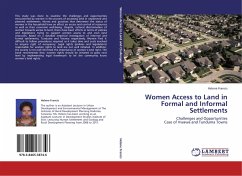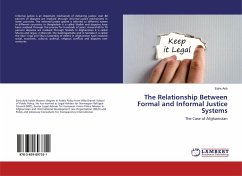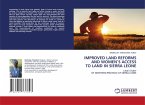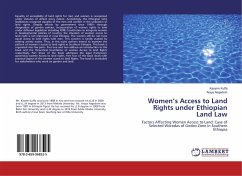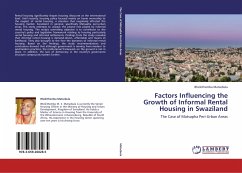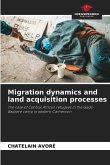This study was done to examine the challenges and opportunities encountered by women in the process of accessing land in unplanned and planned settlements. Norms and practices that determine the status of women in the household have an effect on access and control of resources as well as their economic well-being. Despite, cultural discrimination of women towards access to land, there have been efforts in terms of policies and legislations trying to support women access to and own land resources. Based on a detailed empirical investigation of informal and formal settlements, Tunduma and Vwawa respectively. Women find it difficult to follow procedures required as it takes time and costs involved to acquire right of occupancy. Legal rights (policies and legislations) responsible for women rights to land are not well initiated. In addition, the society is not well informed the importance of women s land right. The book recommends that, women rights should be initiated at grass root level by implementing legal framework to let the community know women s land rights.
Bitte wählen Sie Ihr Anliegen aus.
Rechnungen
Retourenschein anfordern
Bestellstatus
Storno

